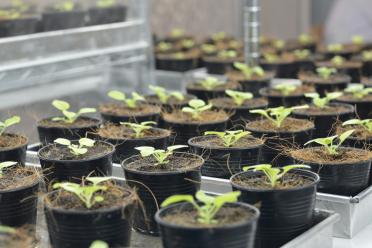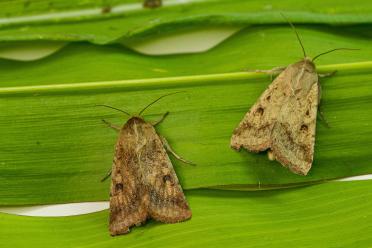
By using precision gene engineering techniques, researchers at the Earlham Institute in Norwich have been able to turn tobacco plants into solar-powered factories for moth sex pheromones.
Critically, they’ve shown how the production of these molecules can be efficiently managed so as not to hamper normal plant growth.
Pheromones are complex chemicals produced and released by an organism as a means of communication. They allow members of the same species to send signals, which includes letting others know they’re looking for love.
Farmers can hang pheromone dispersers among their crops to mimic the signals of female insects, trapping or distracting the males from finding a mate. Some of these molecules can be produced by chemical processes but chemical synthesis is often expensive and creates toxic byproducts.
Dr Nicola Patron, who led this new research and heads the Synthetic Biology Group at the Earlham Institute, uses cutting-edge science to get plants to produce these valuable natural products.
Synthetic biology applies engineering principles to the building blocks of life, DNA. By creating genetic modules with the instructions to build new molecules, Dr Patron and her group can turn a plant such as tobacco into a factory that only needs sunlight and water.
“Synthetic biology can allow us to engineer plants to make a lot more of something they already produced, or we can provide the genetic instructions that allow them to build new biological molecules, such as medicines or these pheromones,” said Dr Patron.
In this latest work, the team worked with scientists at the Plant Molecular and Cell Biology Institute in Valencia to engineer a species of tobacco, Nicotiana benthamiana, to produce moth sex pheromones. The same plant has previously been engineered to produce ebola antibodies and even coronavirus-like particles for use in Covid vaccines.

